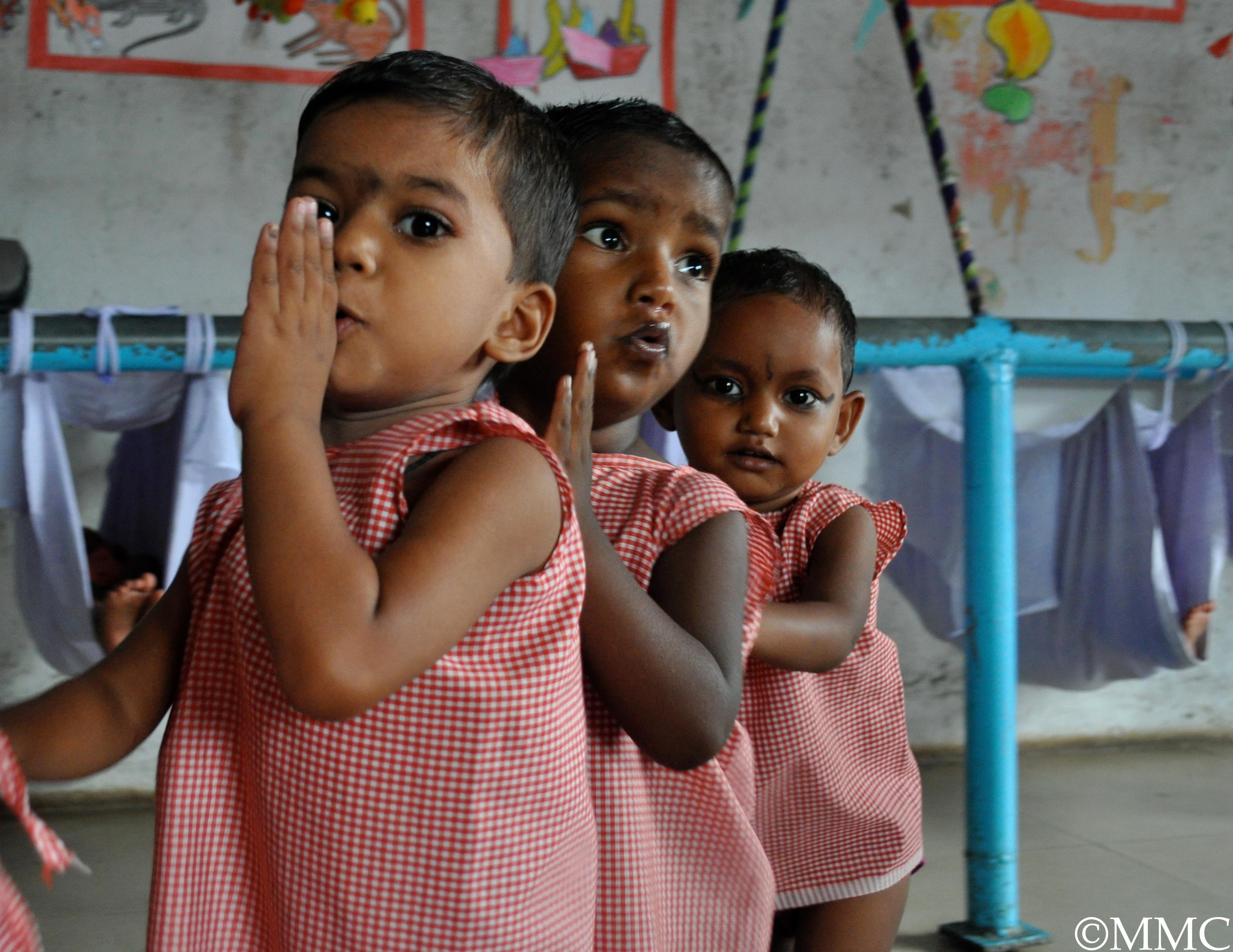Unknown to mainstream society, an entire generation of construction workers’ children is growing up without an education or familial support.
by The Editors | editor@themetrognome.in
Part III of the ‘Little People’ series
‘By 2025, more than half of India will be urbanised. Our fast growing cities are built by millions of poor migrant labourers who live on construction sites with their families and enjoy hardly any of the benefits of India’s growth. Since both parents work, very young children are placed in the care of older siblings, or left to fend for themselves in the midst of the hazards of building sites. More than 10 million children live this way.’
– from a booklet by Mumbai Mobile Creches
We know there are children in slums. We know that our domestic help has enrolled her children in a municipal school. We see the little servant kid in the next building every morning as she walks a grumpy child, not much younger than her, walk her ward to the bus stop. There are others who loll about outside shops, drinking in the sights and smells of the city and scarpering off when asked a lot of questions.
Some children are truly invisible. Like the ones that are born on construction sites. They get left behind in a quickly-built shanty a mere walk away from cement mixers that do their thing, and these little ones’ parents put in a day’s work loading and unloading trucks, or carrying bricks up several flights of just-hewn stairs. What do these children do? Do they go to school? Have they ever been inside one? Is there life an endless blur of play?
Far from the eyes of the city, in the several hundred construction sites dotting Mumbai, the children of construction workers grow up in shanties, grappling daily with abject poverty and the many illnesses that come with dire living conditions. Rootless, shifting from place to place with their parents as one site closes and another one starts, these children receive no formal education and often start working at a very young age.
Colaba-based NGO Mumbai Mobile Creches (MMC) is probably the only organisation currently working for this invisible class of children, giving them an education and the upbringing that can help absorb them in mainstream society. The NGO runs day-care centres on sites that have at least 25 children on the site, and these conduct training programmes for early childhood development. “At any point of time, we have 25 centres operational. Last year, we reached 4,000 children,” says Anita Veermani, Manager, Grants and Communications, MMC.
At each centre, children are provided with basic lessons and three meals a day, six days a week. “Our nutrition programme is comprehensive – we provide medicines, multivitamins, calcium supplements and we have regular doctors visits also,” Anita says, adding that unhygienic living conditions and no access to proper medical care results in the children having skin and eye infections, and a lot of them have lice. “The children are often malnourished, they have worms, they have cough and fever and also a host of injuries,” Anita says.
A staggering fact is that construction workers come to Mumbai from 17 Indian states and two other countries, and most of them stay on for a period of about five years. “We try our best to reach as many children as we can,” Anita says. “But it is more important to get the mothers involved, and a bigger challenge is getting teachers. About 40 per cent of our teachers are women from construction sites who signed up to teach the children,” she adds.
“It is not always possible for each child to enrol in a BMC school, though we have had success on that front as well. Some of our children have grown up and come back to associate with us. Others have taken up site-related skills, like painting.
These children are not exposed to mainstream society, so they remain excluded from the benefits that other children receive. These families keep moving about so much, that even after we have trained the child and brought him up to a certain grade, he may not be able to join a full time school. Our endeavour is to see that they move up the chain, that there is some stability in their lives,” Anita says.
What MMC has done so far:
4,785 children reached
92 PAN cards obtained for the community
6 bank accounts opened for the community
6,233 incidences of illness identified
5,871 vaccinations facilitated
Diaries is a weekly series of stories on one issue. ‘Little People’ is a series of three stories on the education of underprivileged children in Mumbai.




